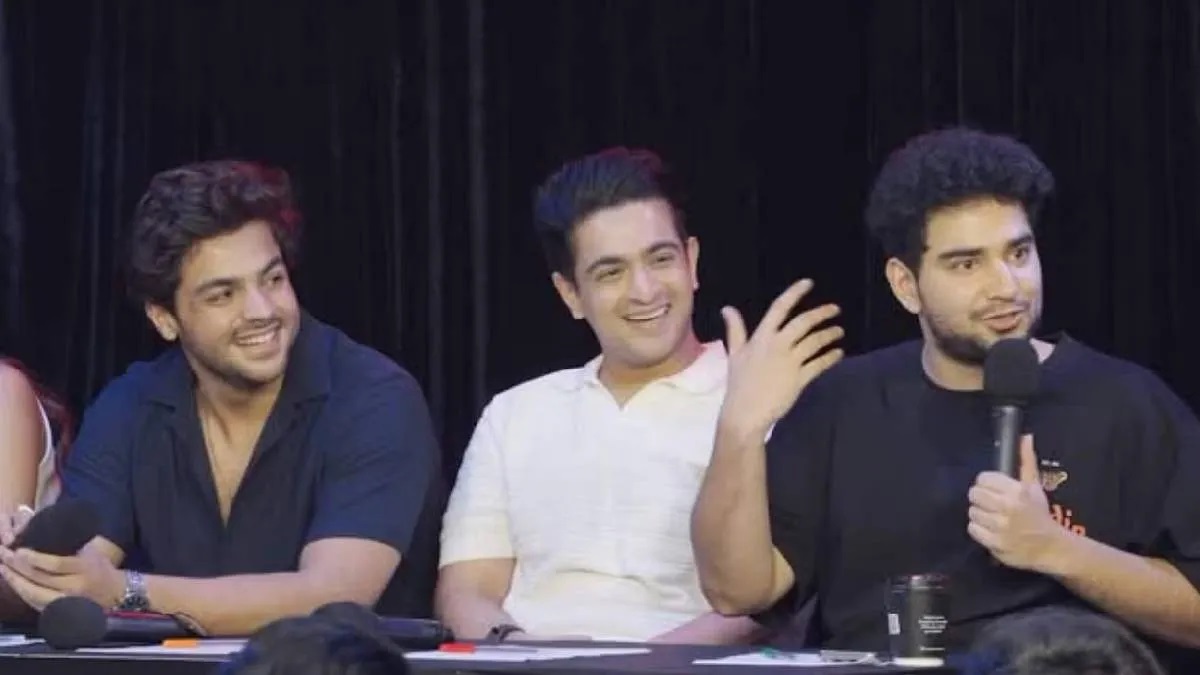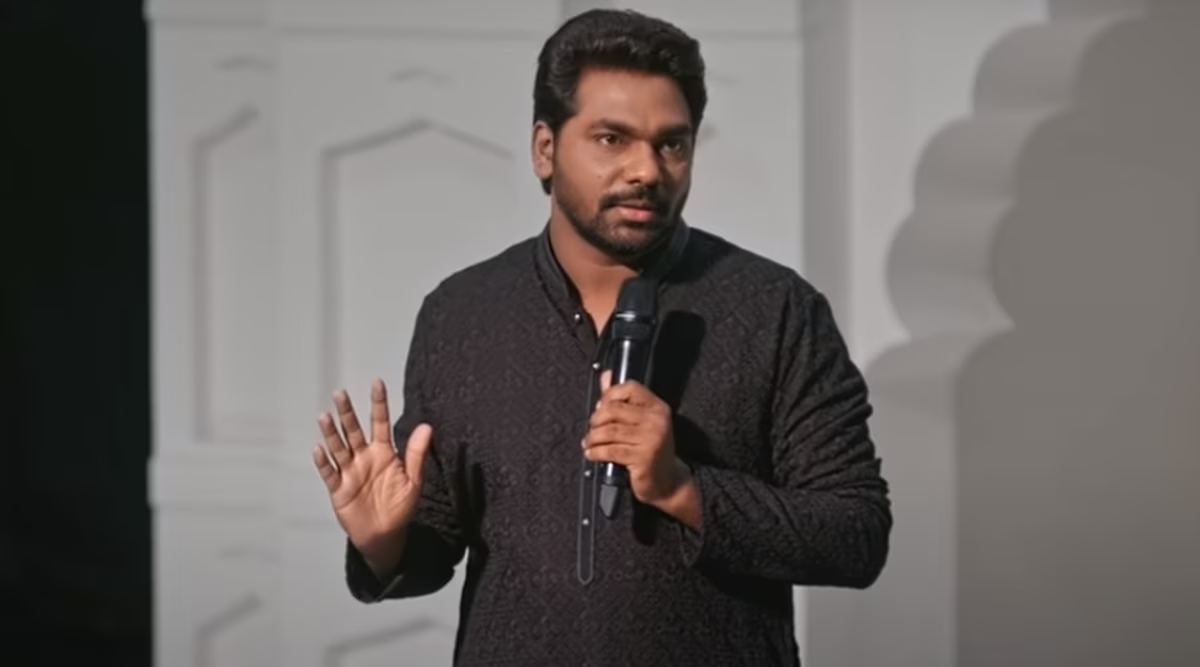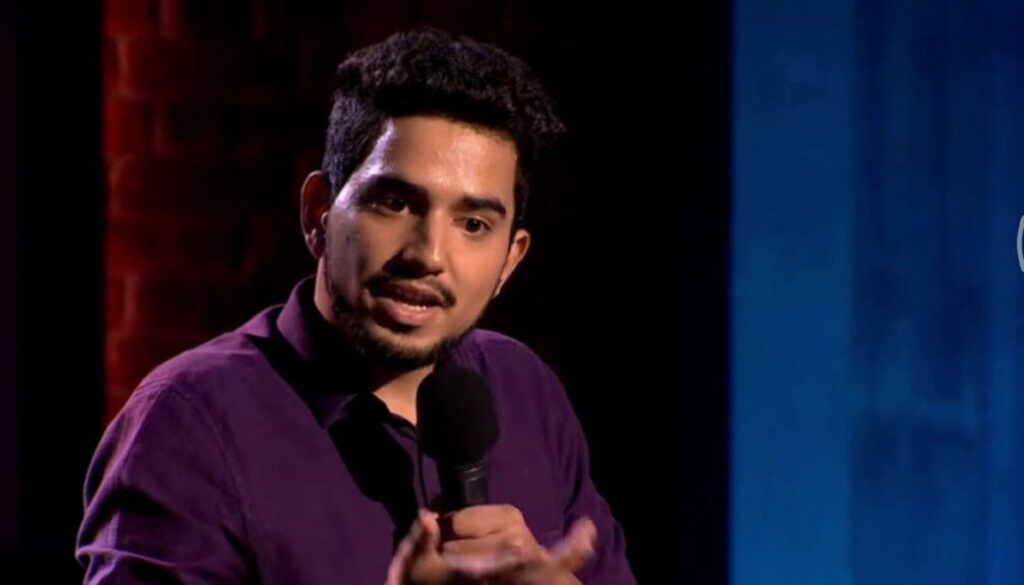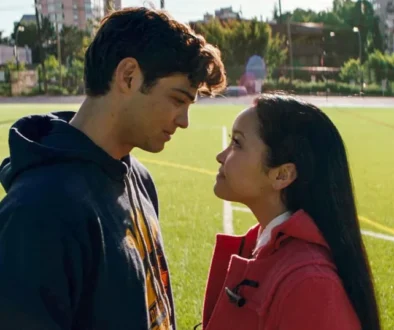India’s Got Latent: When Jokes Are Judged by the Court of Hurt Feelings
Alright, buckle up, GEERDs. We’re diving into the wild, wild world of India’s Got Latent—where comedians crack jokes and then have to turn around and apologize because someone, somewhere decided their sense of humor was under attack. In a world where satire is sacred, let’s get one thing straight: comedians should not be sorry for doing their job.
Catch a support chair or something, for this Reaper is going to change tones and sing you poetry.
The Incident Heard ‘Round the Internet
Picture this: it’s a Tuesday night, and India’s Got Latent contestants are performing their hearts out. One comedian steps up, delivers a joke that’s sharp, witty, and (gasp!) maybe a little controversial. Cue the backlash. Social media explodes. Outrage machine: activated. Suddenly, everyone’s an expert on morality, comedy, and everything in between.
In this particular case, Ranveer Allahbadia, Samay Raina, Ashish Chanchlani, Jaspreet Singh, and Apoorva Makhija found themselves at the center of controversy.
Ranveer Allahbadia: Also known as “BeerBiceps,” he posed a provocative question to a contestant, which led to widespread criticism. The Mumbai police visited his residence and summoned him for inquiry. He has also lost a substantial number of followers on social media platforms.
Samay Raina: A comedian known for his dark humor, he was present during the segment and expressed surprise at the nature of the question. He, along with others, has been named in complaints filed across India.
Ashish Chanchlani, Jaspreet Singh, and Apoorva Makhija: These content creators were also implicated in the controversy. The Assam Police filed a case against them for allegedly “promoting obscenity and engaging in sexually explicit and vulgar discussion.”
The incident has escalated to the point where a Parliamentary panel on information technology is considering summoning Ranveer Allahbadia to address the issue. This situation underscores the ongoing debate about the boundaries of comedy and free speech in India.
Let’s talk about the elephant in the room: satire isn’t meant to be polite. It’s not here to hold hands and sing Kumbaya. Satire is here to poke, prod, and sometimes, yes, offend. If you can’t handle the heat, maybe don’t wander into the kitchen of stand-up comedy.

Comedy’s Job: Speaking Truth (and Maybe Annoying You)
Historically, comedians have been the court jesters of society. They’re supposed to challenge norms and make you squirm a little in your seat. Richard Pryor did it. George Carlin did it. Even our homegrown legends like Vir Das and Zakir Khan aren’t immune to controversy. The point? Comedy without a little discomfort is just… a motivational speech with punchlines.
By apologizing every time someone feels mildly hurt, comedians risk losing the very essence of their craft. Humor isn’t meant to be watered down to “Dad joke” levels of inoffensiveness. It’s meant to challenge perspectives, highlight absurdities, and sometimes expose uncomfortable truths. And yes, people have the right to be offended—but that doesn’t mean comedians owe them groveling apologies.

Double Standards: The Rules of Offense
Now, let’s unpack the double standards. When politicians make wild, offensive claims, they get media coverage and applause from their base. When a comedian makes a joke that’s clearly meant as satire? Cue the torches and pitchforks.
Take any number of incidents where public figures have crossed the line. Some get away with a half-hearted “I’m sorry if you were offended” (translation: “I’m not really sorry”). But comedians? They’re expected to write 5-paragraph essays on why they’ll never be funny again. Make it make sense.
The Role of Context: Missing the Punchline
Context is key, people. A joke taken out of context is like reading one line of Shakespeare and claiming Hamlet’s just a moody teenager. Comedy, especially stand-up, thrives on timing and build-up. You miss the context, you miss the joke. Yet, outrage culture loves to cherry-pick lines without bothering to understand the full narrative.
Take, for example, the joke that sparked the India’s Got Latent controversy. Within its full routine, it had a build-up that framed the punchline as part of a larger satire. But nope, context be damned—let’s grab our hashtags and trend #CancelComedianNameNow instead.
Enter Matt Rife: The King of IDGAF
If you want a masterclass in how to handle outrage, look no further than Matt Rife. The dude built a career on observational humor, often leaning into the edgy, the awkward, and the absurd. And when one of his jokes recently stirred controversy, his response wasn’t a flowery apology letter—it was a ticket offer for the sensitive. Yes, he literally said, “If you’re offended, here’s a ticket to my sensitivity training show.” Iconic.
Matt’s unapologetic stance is a breath of fresh air in a world where everyone’s walking on eggshells. His response didn’t just troll the outrage mob—it pointed out the absurdity of expecting every joke to cater to every possible audience. Comedians are not babysitters for your feelings.
Why Apologies Won’t Stop the Outrage Train
Here’s the truth: apologizing doesn’t stop the outrage. It just fuels it. The second one comedian bends the knee, the floodgates open for every other performer to be scrutinized under the same magnifying glass. It’s a slippery slope from comedians apologizing for jokes to artists censoring themselves into oblivion.
Take international comedian Dave Chappelle—a masterclass in refusing to apologize. Despite receiving heat from multiple fronts, he stood by his jokes and kept performing. The result? His audience grew. The controversy became a testament to his authenticity. Audiences respect comedians who stay true to their voice, even when it’s unpopular.
Comedy’s Sacred Space: The Stage
The stage is the last bastion of free speech. It’s where artists push boundaries, explore uncomfortable truths, and (hopefully) make you laugh in the process. But if every joke becomes a referendum on morality, comedians might as well trade their mics for law degrees.
Stand-up comedy is a dialogue. It’s an invitation to see the world through someone else’s eyes, even if just for a few minutes. If a joke misses the mark, that’s part of the game. But demanding public apologies for every misstep turns comedy into a sanitized version of itself.
The Solution: Laugh, Learn, or Leave
So, what’s the solution? Simple: If you like a comedian’s style, support them. If you don’t, move along. There are thousands of comedians out there. Not every joke is for everyone, and that’s okay. Comedy is subjective. What offends one person cracks another up. And that’s the beauty of it.
Demanding that comedians apologize for every joke they tell is like asking chefs to make every dish bland because some people don’t like spice. It kills creativity and robs audiences of diverse voices.
Closing Thoughts: Free the Funny
India’s Got Latent may have highlighted a new cultural battleground, but let’s not lose sight of what comedy is supposed to be—an art form, a mirror to society, and yes, sometimes a little offensive. The moment we start policing jokes, we lose a vital tool for reflection and growth.
So, to the comedians out there: Keep pushing boundaries. Stay true to your voice. And for the love of all things holy, stop apologizing for doing your job.



